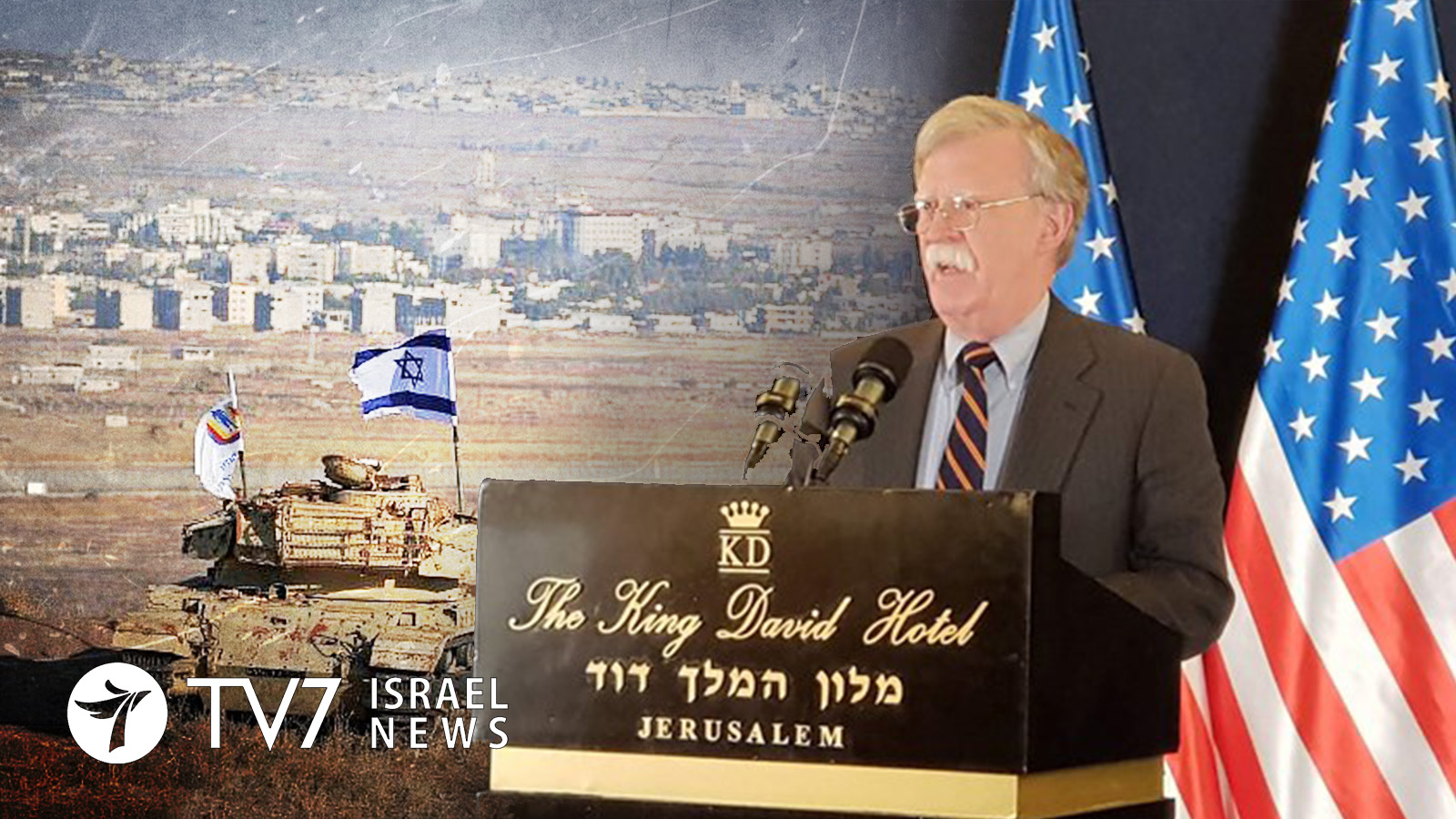U.S. National Security adviser John Bolton stressed that the Trump Administration is not discussing possible recognition of Israel’s claim of sovereignty over the Golan Heights. Ambassador Bolton, who is on an official work visit to Israel, emphasized that while the United States “understands the Israeli claim that it has annexed the Golan Heights,” for the time being “there is no change in the U.S. position.” The comments on the disputed Golan Heights came after a senior Israeli official claimed that Washington’s recognition could be forthcoming within months. The northern Israeli territory was captured from Syria after a decisive Israeli victory in the 1967 Six-Day war. After comprehending the strategic significance of the mountainous region, Jerusalem decided to annex the territory in 1981, a move not endorsed by the international community.
The American National Security Adviser emphasized that Washington viewed Israel’s attacks on Iranian installation and sophisticated missiles as acts of self-defense.
“Iran obviously has a strategic plan to create an arc of control from Iran through the Shi’ite areas of Iraq into Syria, linking up with Hezbollah in Lebanon, that’s not something that we want to see. So we are still working through that, every time Iran brought missiles or other threatening weapons into Syria in recent months Israel struck those targets. I think that’s a legitimate act of self-defense on the part of Israel,” US National Security Adviser John Bolton said.
With regard to the Islamic Republic and its malign activities across the Middle East, Ambassador Bolton emphasized that the United States was not actively pursuing a regime change, but rather demands a change in policy. He further asserted that the international economic sanctions against Iran were already taking a toll on Tehran’s ability to finance terror organizations across the region.
“Just to be clear, regime change in Iran is not American policy, but what we want is massive change in the regime’s behavior.”/ “The consequences in the reduction in resources available to the regime we think is already manifest in some extent in constrains on the Quds force in Syria and Iraq and perhaps also in its assistance to the Houthis in Yemen, and that’s very important. We are going to do other things to put pressure on Iran as well beyond economic sanctions,” US National Security Adviser John Bolton said.
